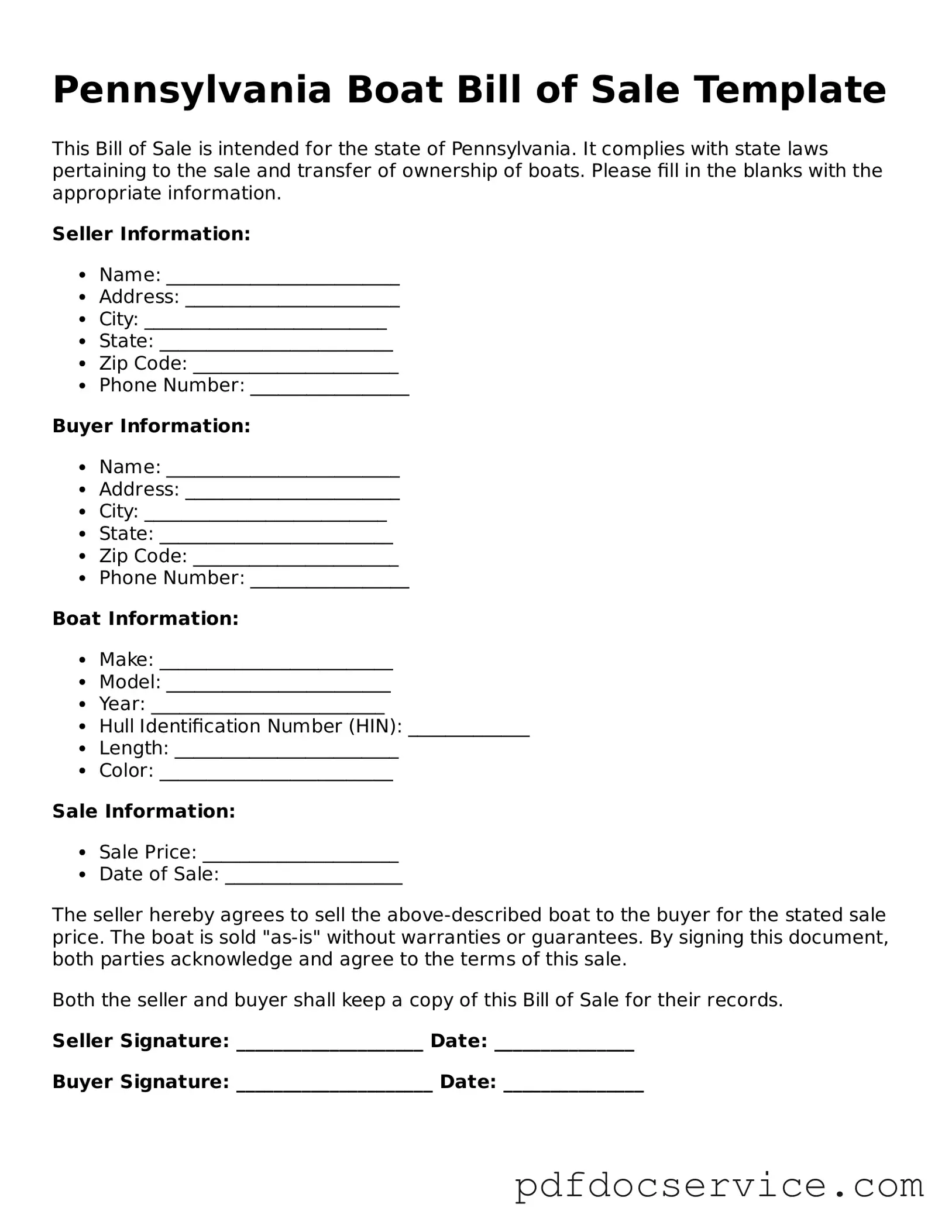Printable Boat Bill of Sale Template for Pennsylvania
The Pennsylvania Boat Bill of Sale form is a legal document used to transfer ownership of a boat from one party to another within the state of Pennsylvania. This form serves as proof of the transaction and includes essential details about the boat and the buyer and seller. Understanding its importance can help ensure a smooth transfer process and protect the interests of both parties involved.
Open Boat Bill of Sale Editor

Printable Boat Bill of Sale Template for Pennsylvania
Open Boat Bill of Sale Editor

Open Boat Bill of Sale Editor
or
Get Boat Bill of Sale PDF
Finish the form now and be done
Finish Boat Bill of Sale online using simple edit, save, and download steps.